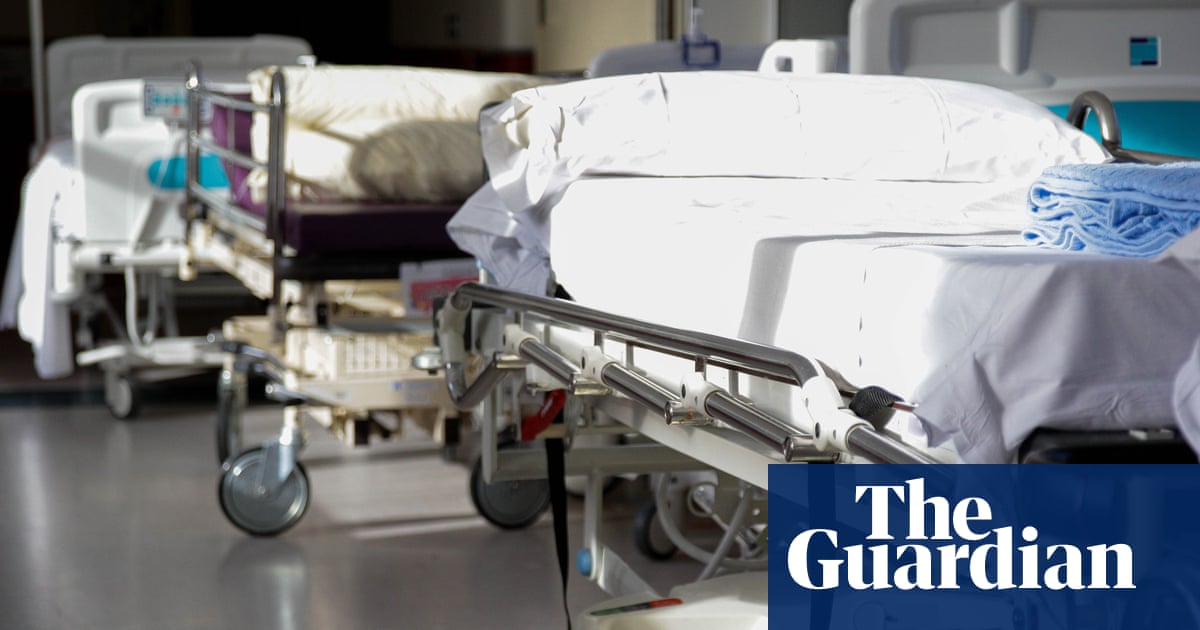- cross-posted to:
- [email protected]
- [email protected]
- cross-posted to:
- [email protected]
- [email protected]
Case of Anthony Thomas ‘TJ’ Hoover II is under investigation by state and federal government officials
A man who had gone into cardiac arrest and been declared brain dead woke up as surgeons in his home state of Kentucky were in the middle of harvesting his organs for donation, his family has told media outlets.
As reported Thursday by both National Public Radio and the Kentucky news station WKYT, the case of Anthony Thomas “TJ” Hoover II is under investigation by state and federal government officials. Officials within the US’s organ-procurement system insist there are safeguards in place to prevent such episodes, though his family told the outlets their experience highlights a need for at least some reform.
…
WKYT reported that Rhorer only learned the full details of her brother’s surgery at the hands of Baptist and the Kentucky Organ Donor Affiliates (Koda) in January. That’s when a former employee of Koda contacted her before sending a letter to a congressional committee that in September held a hearing scrutinizing organ-procurement organizations, NPR reported.
The letter’s author said she saw Hoover begin “thrashing” around on the operating table as well as start “crying visibly”, according to NPR.



I would assume they’d sedate the person, even if brain dead, to guard against this exact scenario (which means they’d be harvesting a not-actually-braindead person, but that’s a separate issue). Do they not do this? Or did they just not sedate enough or something? I don’t know how sedation is measured, does being braindead make it harder to measure because some metric already looks like it does while sedated?
No idea. I’ve only done a few of these, and again they’re absolute madness. I’m a surgical tech, so getting the sterile field and instruments set up is my first responsibility; then it’s getting those instruments into the hands of the surgeons so they’re not wasting ANY time; then it’s packing up the mess afterward. In slower cases I can kinda check out what the anesthesia folks are doing, and sometimes even help out with super basic shit like holding an O2 mask on the patient’s face before they’re intubated to free up their hands for actual patient care, but that’s all extra, time-permitting stuff that isn’t a normal part of my job.
For organ harvests specifically, I don’t even recall if an anesthesiologist or CRNA was present or not - these cases require 100% of my focus to stay honed in on my own job, otherwise I’ll fall behind, which slows the surgeons down, which compromises the organs being harvested and used.
It makes intuitive sense to give a little sedation to prevent the scenario from the article, but I could see that being problematic for a harvest: sedation or general anesthesia are systemic, so any of that they administer is going to make its way into the organs being harvested. Whether or not that’s an issue for those organs or the next patient receiving them… no idea. Could actually be beneficial and already standard practice. Or anywhere in between. That’d be a question for an organ harvest doc - it’s over my head.
No, if a patient is declared brain dead, there is usually no sedation given. It shouldn’t be necessary, as the neurons responsible for sensing pain aren’t alive and processing signals, and extra medication like sedation comes with the risk of hemodynamic instability, which is already kind of a headache in brain dead patients as the brain is no longer meditating that (extremely oversimplified). Yes, sedation can be measured (sorta) with a BIS probe, a spectral imaging probe on the forehead that acts like an EEG with fewer probes, but it’s not very useful in brain death as it’s ultimately looking at blood flow, and in brain death, we don’t expect to see blood flow to the brain.
All of this, of course, assumes that he was declared brain dead, which is a very specific legal term with very specific parameters that vary slightly state by state, which seems unlikely in this situation. He may have been deemed to have a severe neurologic injury with an unlikely prognosis of meaningful recovery, and thus be a planned DCD (declared cardiac death) donation, meaning placed on a minimally assistive ventilatory support and allowed to die once his respiratory drive was so low he died of hypoxic respiratory failure. But the article is long on anecdotes and short on the technical terms physicians would use, so it’s hard to say.